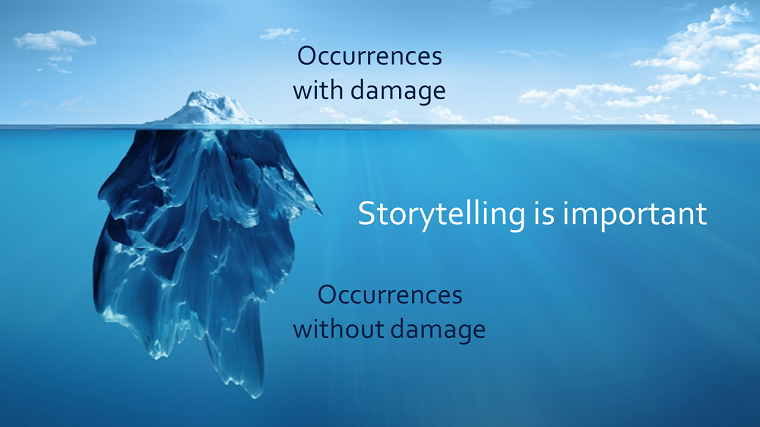Story Telling
Stories drive the system. You can keep track of what goes wrong and that is what most organizations do. But a statistic only tells you if and where there might be a problem. It shines no light on what the problem might actually be. To really understand a problem you need to know the full story behind an occurence in all its details. Including the ugly ones the actors would rather just forget about.
One step further on the road to high reliability you also need to learn from things that go wrong, but were caught before they could cause damage. These occurences are a cheap source for learning and they are abundant. The iceberg metaphor actually is a dramatic underestimation of the real-world situation. In a highly reliable organization the ratio of damage to no-damage occurences is not 1 to 10, but rather 1 to 10,000.
